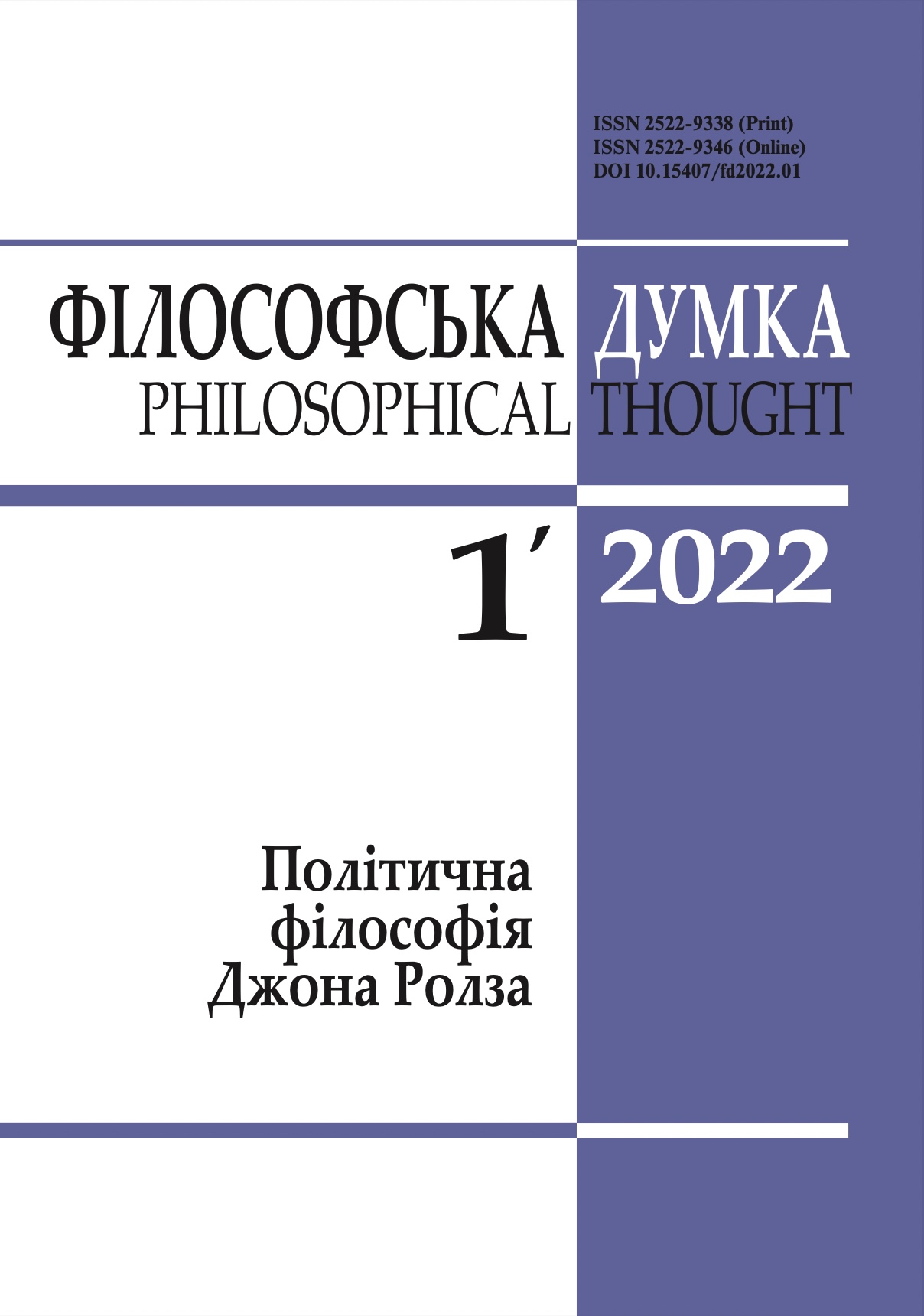THE SCHOOL OF THINKING, NOBILITY OF PHILOSOPHICAL SPIRIT AND CIVIL COURAGE (to the 75-th anniversary of H.S. Skovoroda Institute of Philosophy, National Academy of Sciences of Ukraine)
Return to the topic: H.S. SKOVORODA INSTITUTE OF PHILOSOPHY — 75TH ANNIVERSARY
DOI:
https://doi.org/10.15407/fd2022.01.134Keywords:
Institute of Philosophy, Skovorodian tradition, thinking, world-view, culture, philosophy, freedom, scientific community, education, responsibilityAbstract
The article emphasizes the cultural and educational importance of H. Skovoroda Institute of Philosophy for the spiritual development of the Ukrainian society, especially in the direction of democracy and establishment of the worldview culture as a requirement for the culture of freedom. From the position of the included observer the author of the article describes some episodes of relationship in the scientist’s communities which can be defined as justice and solidary community. On the basis of the Heidegerian scheme, some dangers are analyzed as demands addressed to philosophical thinking. This scheme is used by structuring of the article. The metaphoric of these dangers indicates the contextual problems which are important for producing of philosophical ideas. The experience of the Institute of Philosophy gained by solving of problems is very remarkable for the fulfillment of philosophical studies and educational practices especially by mentoring of the postgraduate students. The fact of naming the Institute after H. Skovoroda is regarded as a symbolic act with a great creative potential and energy which can be used for reviving of national traditions of philosophical thinking. The role of lyric in activating of philo- sophical ideas is showed. The symbiotic coexisting of the poetry, art, journalism and philosophy is one of the original features of the Skovorodian tradition caring by the well-known representa- tives of the Institute.
All these characteristics joined with the civic culture, which was demonstrated by all gener- ations of the Institute, allow defining it as a metaphysical place with the ability both to follow on the road of the way of light and to represent it on the landscapes of philosophical science and education. The history of the Institute, especially, in the period of its post-totalitarian transforma- tions, gives the opportunity of taking comparison with the Institute for Social Research Frankfurt. The civic courage of the Ukrainian intellectual elites was always initiated, supported and generated by philosophers gathering in Institute of Philosophy.
References
Adorno, T. (1994). Noten zur Literatur. Frankfurt am Main: Suhrkamp.
Dontsov, D. (1991). The spirit of our antiquity. [In Ukrainian]. Drohobych: Vidrodzhennia.
Heidegger, M. (1981). Aus der Erfahrung des Denkens. Pfullingen: Günther Neske.
Jaspers, K. (1991). Kleine Schule des philosophischen Denkens. München: Piper.
Krymskyi, S. (2012). Our lifelong conversation: A Set of Interviews with Tatiana Chaika. [In Ukrainian]. Kyiv: D. Burago PH.
Kultaieva, M. (2017). The education and its deformations in the contemporary culture: regarding the relevance of the theory of half-education by Theodor W. Adorno. [In Ukrainian]. Filosofia osvity. Philosophy of Education, 1 (20), 153-195.
https://doi.org/10.31874/2309-1606-2017-20-1-153-195
Nida-Rümelin, J. (2014). Der Akademisierungswahn. Zur Krise beruflichen und akademischer Bildung. Hamburg: Körber-Stiftung.
Sloterdijk, P. (2015). Die schrecklichen Kinder der Neuzeit. Berlin: Suhrkamp.
Downloads
-
PDF (Українська)
Downloads: 248
Published
How to Cite
Issue
Section
License
Authors who publish with this journal agree to the following terms:
- Authors retain copyright and grant the journal right of first publication.
- Authors are able to enter into separate, additional contractual arrangements for the non-exclusive distribution of the journal's published version of the work (e.g., post it to an institutional repository or publish it in a book), with an acknowledgement of its initial publication in this journal.
- Authors are permitted and encouraged to post their work online (e.g., in institutional repositories or on their website) prior to and during the submission process, as it can lead to productive exchanges, as well as earlier and greater citation of published work (See The Effect of Open Access).


